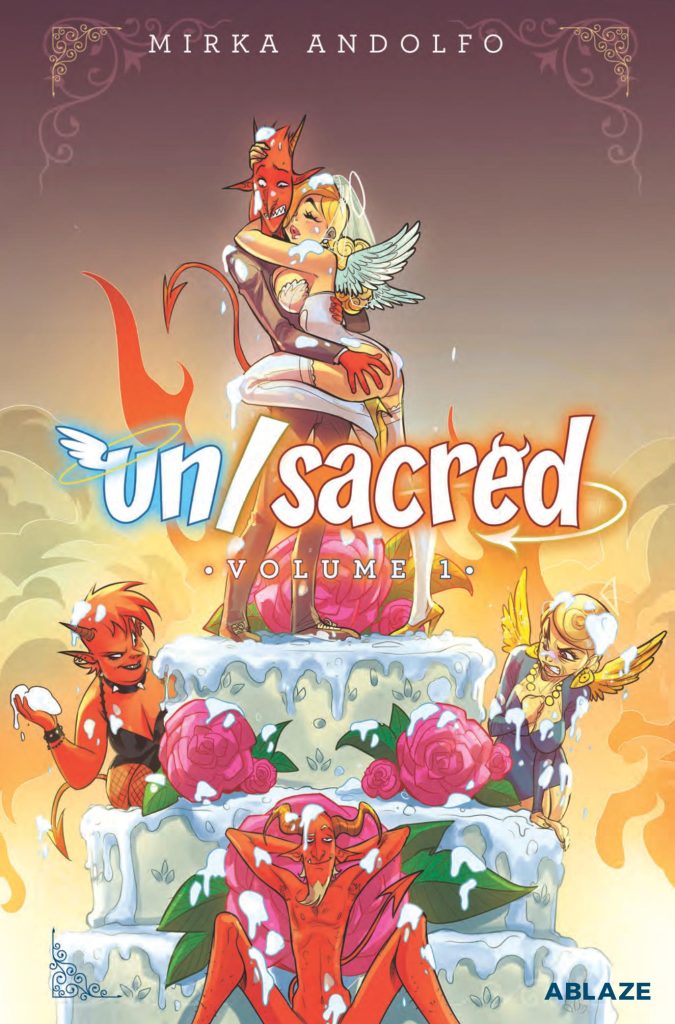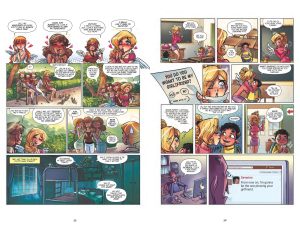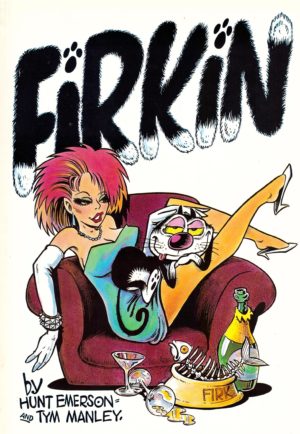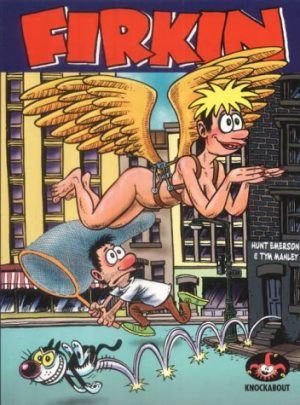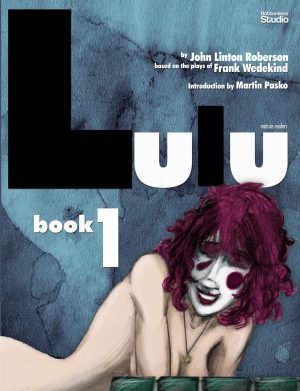Review by Frank Plowright
By the time Mirka Andolfo’s cultured cartooning first appeared in American comics she was already greatly acclaimed in her Italian homeland, and the series that really made her name was Un/Sacred, begun in 2012 and published all over Europe. This opening volume combines and translates the first three European albums, taking the cover from the second of them.
Angelina is an angel, and Damiano a demon who’s also a rock star successful enough to play fair sized venues, but without necessarily wowing the audiences. He’s infatuated with her, while her idea of love is more platonic, and seven years after meeting at one of his gigs their relationship still remains clear of the bed. It’s a continuing frustration for him sustaining many gags.
There are exceptions, but Un/Sacred is primarily single page joke strips working their way to a punchline, which accounts for a list of over a dozen writers noted as contributing. To begin with the formula is repetitive, double entendres and misdirection like the left hand sample art being the order of the day. However, gradually the themes broaden. Damiano’s still not getting everything he wants, and he’s not going to until they’re married, but that’s not on the agenda for a demon.
It’s the joyfully expressive cartooning that’s the star of the show for a long time before the writing begins to catch up. Andolfo creates a playfully innocent, yet seductive Angelina who can wind Damiano around her little finger despite his demonic credentials. Those mean he’s seen as two different people, one living up to his reputation, the other a sack of soppiness, and both are plausibly drawn.
With the second book here the plot moves onward for the better, as Angelina now enjoying a sex life provides greater comedy opportunities than just frustration. Clever misdirection of the audience remains a standby, but there are the prospective in-laws to consider, not least meetings between them, in a selection of strips leading up to Angelina and Damiano’s wedding. The more puritan might not approve of that way people behave, but Andolfo has a good handle on what blokes will get up to if given the opportunity.
Each of the original albums begins and ends with a tale running over several pages and moving the overall story forward. This collection starts with Angelina and Damiano’s first meeting as infants, and ends with the birth of their own child, which rather completes a cycle.
It’s the art that will first captivate, but the writing gradually improves to the point where there are some genuine side-splitters, not just the Italian equivalent of old British seaside postcard gags. Andolfo and her writing partners work the premise efficiently, and the continuing improvement makes Volume 2 very desirable.
